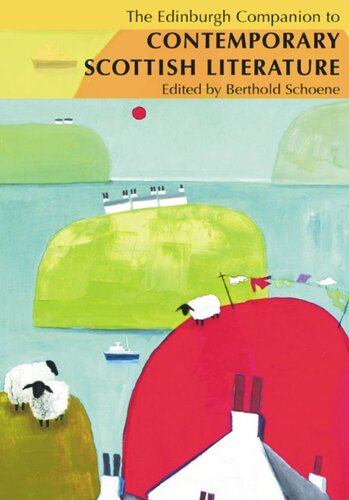

Most ebook files are in PDF format, so you can easily read them using various software such as Foxit Reader or directly on the Google Chrome browser.
Some ebook files are released by publishers in other formats such as .awz, .mobi, .epub, .fb2, etc. You may need to install specific software to read these formats on mobile/PC, such as Calibre.
Please read the tutorial at this link: https://ebookbell.com/faq
We offer FREE conversion to the popular formats you request; however, this may take some time. Therefore, right after payment, please email us, and we will try to provide the service as quickly as possible.
For some exceptional file formats or broken links (if any), please refrain from opening any disputes. Instead, email us first, and we will try to assist within a maximum of 6 hours.
EbookBell Team

4.1
20 reviewsThe Edinburgh Companion to Contemporary Scottish Literature examines the ways in which the cultural and political role of Scottish writing has changed since the country's successful referendum on national self-rule in 1997. In doing so, it makes a convincing case for a distinctive post-devolution Scottish criticism.
Introducing over forty original essays under four main headings - 'Contexts', 'Genres', 'Authors' and 'Topics' - the volume covers the entire spectrum of current interests and topical concerns in the field of Scottish studies and heralds a new era in Scottish writing, literary criticism and cultural theory. It records and critically outlines prominent literary trends and developments, the specific political circumstances and aesthetic agendas that propel them, as well as literature's capacity for envisioning new and alternative futures. Issues under discussion include class, sexuality and gender, nationhood and globalisation, the New Europe and cosmopolitan citizenship, postcoloniality, as well as questions of multiculturalism, ethnicity and race.
Written by critics from around the world - and by several creative writers - the work of solidly established Scottish authors is discussed alongside that of relative newcomers who have entered the scene over the past ten years or currently emergent writers who are still in the process of getting noticed as part of a new literary avant-garde.
Key Features